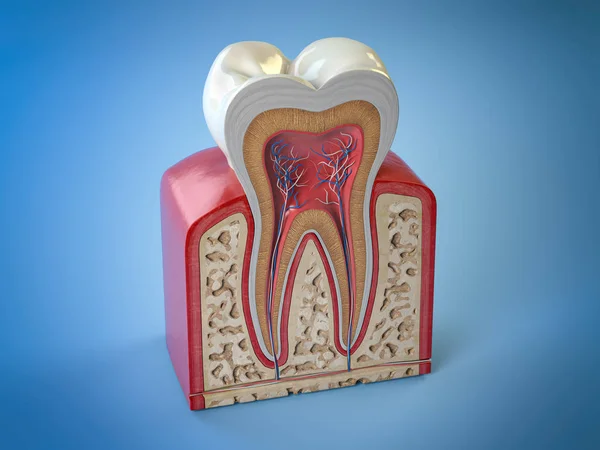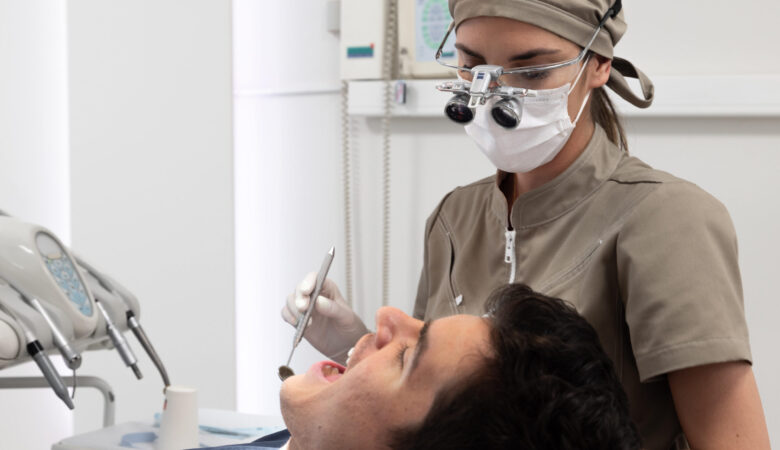Wisdom teeth removal, also known as third molar extraction, is a common dental procedure aimed at removing one or more wisdom teeth located at the back of the mouth. These teeth typically emerge during the late teens or early twenties and can sometimes cause complications such as impaction, overcrowding, or infections. Dentists and oral surgeons often recommend extraction to prevent future dental issues.
Table of Contents
ToggleWhile the procedure is generally safe, it does carry risks, including nerve damage. The close proximity of wisdom teeth to major nerves, such as the inferior alveolar nerve and lingual nerve, makes them susceptible to injury during the extraction process.
How Common Is Nerve Damage After Wisdom Teeth Extraction?
Nerve damage following wisdom teeth removal is relatively uncommon, occurring in approximately 0.1% to 22% of cases depending on factors such as the complexity of the surgery, the position of the teeth, and the skill of the surgeon.
Types of Nerves Affected
- Inferior Alveolar Nerve (IAN): This nerve runs along the lower jaw, providing sensation to the lower lip, chin, and gums.
- Lingual Nerve: Located near the tongue, this nerve controls sensations in the tongue and surrounding areas.
Damage to these nerves can result in altered sensations, numbness, or even pain, which can be temporary or, in rare cases, permanent.
Causes of Nerve Damage During Wisdom Teeth Surgery
Surgical Techniques and Risks
Wisdom teeth removal often involves cutting into the gum tissue, drilling into the bone, or sectioning the tooth into smaller pieces to facilitate extraction. During this process, nearby nerves may be accidentally stretched, compressed, or severed.
Anatomical Variations in Nerve Positioning
The risk of nerve damage increases in cases where the wisdom teeth are deeply embedded or closely aligned with nerves. In some individuals, anatomical variations, such as nerves running adjacent to or through the tooth roots, elevate the chances of nerve injury.
Symptoms of Nerve Damage After Wisdom Teeth Removal
Signs of Lingual Nerve Damage
- Numbness or tingling in the tongue
- Loss of taste on one side of the tongue
- Difficulty speaking, chewing, or swallowing
Symptoms of Inferior Alveolar Nerve Damage
- Numbness in the lower lip, chin, or gums
- Tingling or a “pins and needles” sensation
- Loss of feeling in the affected areas
Diagnosing Nerve Damage Post-Surgery
Clinical Evaluation and Medical History
A dentist or oral surgeon will assess the patient’s symptoms, including the duration and severity of numbness or tingling. Patients may also be asked about pain levels and whether the sensations have improved or worsened since the surgery.
Imaging Techniques for Nerve Assessment
Advanced imaging methods such as CBCT (Cone Beam Computed Tomography) or MRI scans are often used to visualize nerve positioning and detect any compression, displacement, or severing of the nerve tissue.
Treatment Options for Nerve Damage After Wisdom Teeth Extraction
Conservative Treatments for Minor Nerve Injuries
Medications and Pain Management
- Anti-inflammatory drugs: Reduce swelling and relieve pressure on the nerve.
- Neuropathic pain medications: Such as gabapentin or pregabalin, to alleviate nerve pain.
- Topical anesthetics: Numbing gels can offer temporary relief.
Physical Therapy and Rehabilitation
Physical therapy may include gentle massages, desensitization techniques, and exercises aimed at improving nerve function and restoring sensation.
Surgical Treatments for Severe Nerve Damage
Nerve Grafting and Repair Procedures
In severe cases where the nerve is completely severed, microsurgical procedures may be necessary to repair or graft the damaged tissue.
Microsurgical Techniques
These procedures often require highly specialized surgeons and involve reconnecting severed nerve endings or replacing damaged sections with grafts taken from other parts of the body.
Preventing Nerve Damage During Wisdom Teeth Removal
Pre-Surgical Planning and Imaging
Preventing nerve damage starts with thorough pre-surgical planning. Dentists and oral surgeons often use panoramic X-rays or cone-beam computed tomography (CBCT) scans to evaluate the exact position of the wisdom teeth and their proximity to nearby nerves. These imaging techniques help map out the nerve pathways, reducing the risk of accidental injury.
Surgeons can also assess whether a tooth is impacted or unusually positioned. In cases of high-risk placement, a surgeon may recommend a coronectomy—removing only the top part of the tooth while leaving the roots intact to avoid nerve contact.
Choosing an Experienced Oral Surgeon
Experience matters significantly when it comes to oral surgeries involving nerves. An experienced surgeon will have a higher success rate in avoiding complications like nerve damage. Patients should seek referrals, read reviews, and inquire about the surgeon’s experience with complex wisdom teeth extractions before proceeding.
Minimizing Surgical Trauma
During surgery, minimizing trauma to tissues and nerves is key. Surgeons often use piezoelectric surgery, which utilizes ultrasonic vibrations to cut through bone without damaging soft tissues like nerves. Smaller incisions and advanced tools further lower the risk of complications.
Recovery Process After Nerve Damage Treatment
Expected Timeline for Healing
The recovery timeline for nerve damage varies depending on the severity of the injury. Mild nerve injuries may resolve within a few weeks to a couple of months, while moderate damage could take 3 to 6 months. Severe cases involving nerve severance may require surgical intervention and could take a year or longer for recovery.
For some patients, complete recovery may not be possible, and they may have to manage chronic symptoms. Regular follow-ups with an oral surgeon or neurologist can help track progress and make necessary adjustments to treatment plans.
Managing Pain and Sensory Changes During Recovery
Patients often experience discomfort, tingling, or hypersensitivity as nerves regenerate. Pain management options include:
- Over-the-counter pain relievers such as ibuprofen and acetaminophen.
- Prescription medications like gabapentin to control neuropathic pain.
- Cold and warm compresses to ease swelling and discomfort.
- Topical numbing agents for localized relief.
Tips for Speeding Up Recovery
- Stay hydrated and eat a balanced diet rich in vitamins B12 and C, which support nerve repair.
- Avoid smoking and alcohol, as these can delay healing.
- Gentle massage therapy to stimulate nerve regeneration.
- Follow-up appointments to monitor progress and address any lingering concerns.
Long-Term Effects of Nerve Damage After Wisdom Teeth Removal
Chronic Pain and Numbness
For some individuals, nerve damage may result in persistent numbness or chronic pain in the affected areas. This condition, known as paresthesia, can significantly impact quality of life, leading to difficulties in speaking, eating, and performing daily activities.
Psychological Impact and Coping Strategies
Living with nerve damage can take an emotional toll, often leading to anxiety or depression. Patients should consider:
- Counseling or therapy to address emotional distress.
- Support groups for connecting with others who share similar experiences.
- Mindfulness practices like meditation and yoga to reduce stress.
Lifestyle Adjustments for Managing Symptoms
Patients may need to make practical adjustments, such as chewing on the unaffected side of the mouth, using soft-bristle toothbrushes, or avoiding extreme temperatures in food and beverages to reduce discomfort.
Frequently Asked Questions About Nerve Damage from Wisdom Teeth Removal
1. Can Nerve Damage Heal Completely?
Yes, mild to moderate nerve damage often heals completely within weeks to months. Severe cases may require surgery, and while improvement is possible, some symptoms might persist.
2. How Long Does It Take to Recover from Nerve Injury?
Recovery depends on the extent of the injury. Minor injuries can heal within 6–8 weeks, while major damage may take 6–12 months or longer, especially if surgical intervention is needed.
3. Is Surgery Always Necessary for Nerve Repair?
No, surgery is only required for severe cases where the nerve has been cut or severely compressed. Most minor injuries heal with medications and physical therapy.
4. Are There Any Home Remedies to Help Recovery?
Yes, consuming foods rich in vitamins B12 and C, applying warm compresses, and performing gentle massages may promote nerve healing. However, these should complement, not replace, professional treatments.
5. What Are the Chances of Permanent Nerve Damage?
Permanent nerve damage is rare but can occur in about 1–2% of cases. Proper pre-surgical planning and experienced surgeons significantly reduce this risk.












